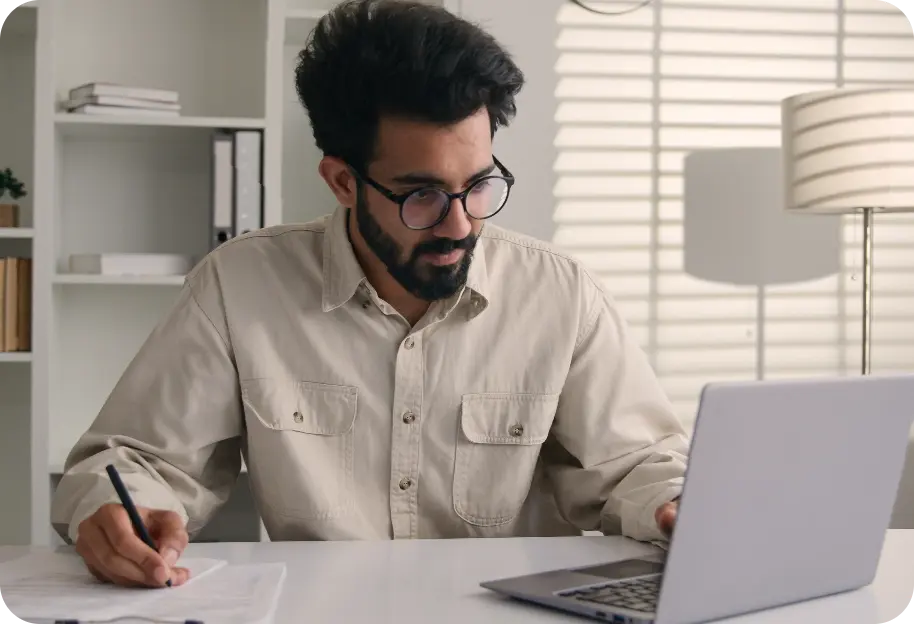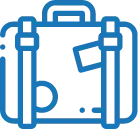Arabic Classes with Native Arabic Tutors
You can be trained by our native-speaking fully-qualified, locally-based Arabic tutors at a time and location to suit you. These highly personalised Arabic lessons can take place any day -even weekends- and can be organised in the morning, afternoon or evening. If taking lessons at your home or office is not convenient, there is always the option to take classes at the office of your teacher.

Language Trainers organizes Arabic courses in almost any destination!

Learn Arabic Online Or Face-to-Face
Choose Arabic tutoring online, face-to-face, or a combination of both. As you progress, you have the flexibility to modify the mix of virtual and face-to-face learning to align with your personal preferences and timetable.
Some of our popular Arabic Tutors

Rasha
Rasha
- Language Taught: Arabic
- Years of teaching experience: 20
- Speaks Arabic, English.
Based in Mississauga, Rasha excels as an Arabic language instructor. She earned her Bachelor’s in English Language and Literature from the World Education Service, Canada, and secured a Master’s in Guidance and Counseling from the UNESCO Institute of Education in Lebanon. Additionally, she holds a Diploma in Teaching for Elementary, Preparatory, and Secondary School levels from Lebanon.

Sana
Sana
- Language Taught: Arabic
- Years of teaching experience: 10
- Speaks Arabic, English, French, Spanish.
Sana, a multilingual online Arabic tutor with a decade of experience, holds a PhD in Spanish Language. She has dedicated her career to teaching various languages at different educational levels. Known for her flexibility and creativity, Sana has successfully adapted to various teaching environments.

Nariman
Nariman
- Language Taught: Arabic
- Years of teaching experience: 11
- Speaks Arabic, English, French.
A dedicated, Ottawa-based Arabic tutor with a master’s degree in Bilingualism Studies, Nariman has 11 years of experience teaching languages to diplomats and newcomers in Canada. She uses a communicative approach to help students overcome challenges and reach their goals. Committed to excellence, Nariman’s personalized lessons are designed to take learners to the next level of fluency.
Reviews Of Our Arabic Courses

My first lesson went great. Tarif is an amazing teacher.

My lessons are going well. I really lucked out to have Makram as a teacher. He is very flexible, has tons of knowledge, and focuses on what my goals are.
“اختبر لغتك العربيه”...
Test your Arabic skills
14689 tests taken so far | Average score: 31 out of 70

How to Book Your Arabic Lessons
Take our Arabic Language Level Test.
Let us know why you need to learn Arabic and include the time and location that best suit you.
Review our quote and, if you are happy with it, receive our invoice and Agreement form.
Sign our Agreement form and submit a deposit* for the course.
Receive confirmation from our team with your Arabic tutor’s details.
Begin your Arabic training and receive your Arabic course book.
Throughout your Arabic course, the Language Trainers Academic Team will be on hand to help you with any queries.

After the first lesson or two, our team will contact you to ensure you are happy with your trainer. If necessary, we will change the focus of the course to better suit your needs.
After finishing your course, we will send you a course attendance and completion certificate..
Our team will provide you with follow-up learning opportunities, including: self study material, language courses in Arabic-speaking countries, and more advanced courses with Language Trainers.
* Your quote will include options for different packages of hours ; a typical course lasts 30 hours, with classes of 2 hours each for in-person and 1 hour each for online. Deposit payable by bank transfer, cheque, debit or credit card, or PayPal.
Arabic for...
-
 Business
Business -
 Family & Relationships
Family & Relationships -
 Career & Professionals
Career & Professionals -
 Travel & Personal
Travel & Personal -
 Relocation
Relocation -
 Real Estate
Real Estate -
 Exam Preparation
Exam Preparation -
 Healthcare
Healthcare

Free Arabic Learning Resources
Level tests, listening tests, foreign song, film and book reviews, course book reviews, games and trivia and more.
Preferred Supplier
Language Trainers is the preferred supplier for




